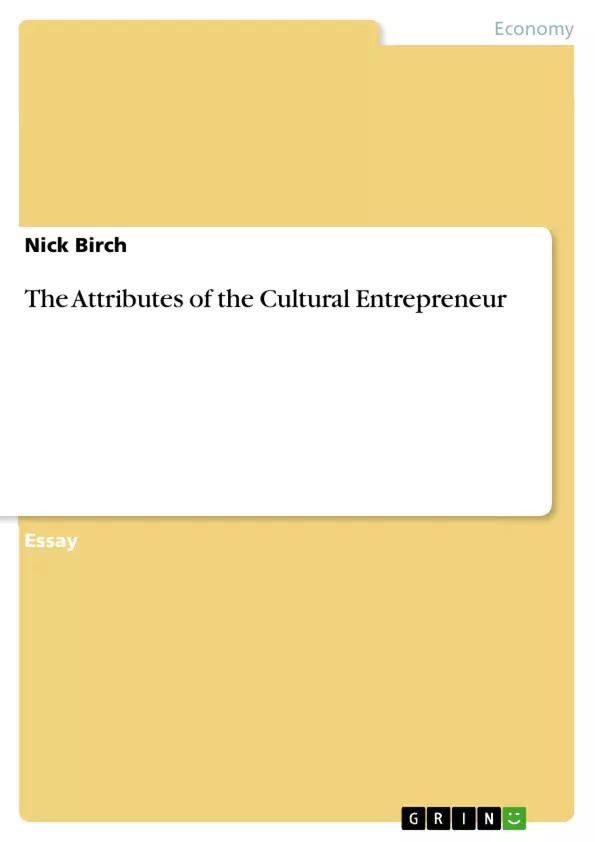For generations, Zen philosophy has taught the importance of finding tranquillity inside yourself instead of foolishly seeking it in the world around you. One of the most profound teachings from this philosophy, and probably one that is most relevant to the entrepreneur, is that of ignoring doctrine and listening to your gut instinct. (Butt, 2014a)
Google (N/A) defines entrepreneur as ‘a person who organizes and operates a business or businesses, taking on greater than normal financial risks in order to do so’, from the French ‘entreprendre’, meaning to ‘undertake’ and ‘go between’. Branagan (2003) outlines several critical success factors:
• being able to make connections and spot opportunity
• taking a creative approach to problem solving
• being able to cultivate networks of appropriate contacts
• being able to persuade, inspire and motivate others through enhanced vision
• the ability to take calculated risks and having the nerve to work outside convention
• the ability to overcome rejection and failure
• keeping pace with technology and innovation
• an understanding of business strategies and tactics
It is the spirit of undertaking something novel and innovative; in some sense either pushing forward with avant-garde activities, or combining elements from previous concepts for new markets or audiences. There are many entrepreneurs within the arts world who do just this, acting as go-betweens for artists and clients, or audiences. Furthermore, the common preoccupation with originality, implementing ideas and making progress, held by many artists and arts consultants, is itself an entrepreneurial trait; translating vision into a creative act. From a contemporary and historical perspective, an entrepreneurial outlook has either inadvertently or intentionally ensured the successful progression of many very influential figures within both the commercial and non-commercial arts sectors.
(Branagan, 2003)
Table of Contents
- Cultural Capital
- The Cultural Economy
- Cultural Domains
- Intangible Cultural Heritage
- Education and Training
- Archiving and Preserving
- Equipment and Supporting Materials
- Creativity + Technology = Explosive Economic Growth
- Exploiting International Integration
Objectives and Key Themes
This text explores the attributes of the cultural entrepreneur, examining the intersection of creativity, technology, and the cultural economy. The text aims to provide a comprehensive understanding of the entrepreneurial spirit within the arts and cultural industries, highlighting the key drivers of success and exploring the impact of globalization and technological innovation on the cultural landscape.- The Role of Cultural Capital in Entrepreneurial Success
- The Dynamics of the Cultural Economy and its Economic Impact
- The Transformative Power of Technology and its Influence on Creative Industries
- The Importance of International Integration and Market Exploitation
- The Entrepreneurial Spirit and its Manifestation in the Arts and Culture Sector
Chapter Summaries
Cultural Capital
This chapter introduces the concept of cultural capital, drawing on the work of Pierre Bourdieu. It explores how cultural capital, encompassing skills, tastes, and social connections, shapes social mobility and influences entrepreneurial success in the arts and culture industries.The Cultural Economy
This chapter delves into the economic impact of the cultural economy, utilizing UNESCO's Framework for Cultural Statistics. It highlights the diverse range of cultural domains, emphasizing the importance of intangible heritage, education, archiving, and technology in driving economic growth.Creativity + Technology = Explosive Economic Growth
This chapter explores the transformative power of disruptive technologies in the creative and cultural industries. It examines the rapid growth of new firms and the shift in the creation, distribution, and consumption of cultural goods and services, driven by technological advancements.Exploiting International Integration
This chapter examines the role of international integration and globalization in entrepreneurial success. It highlights the increasing interconnectedness of cultural markets and the emergence of new business models, exemplified by the rise of platforms like Airbnb.Keywords
This text focuses on the concept of the cultural entrepreneur, examining the interplay between cultural capital, the creative economy, technological innovation, and globalization. Key themes include the impact of disruptive technologies, the rise of new business models, and the evolving dynamics of the cultural landscape. Concepts such as creative destruction, international integration, and the entrepreneurial spirit are central to the text.- Citar trabajo
- Nick Birch (Autor), 2014, The Attributes of the Cultural Entrepreneur, Múnich, GRIN Verlag, https://www.grin.com/document/279279



